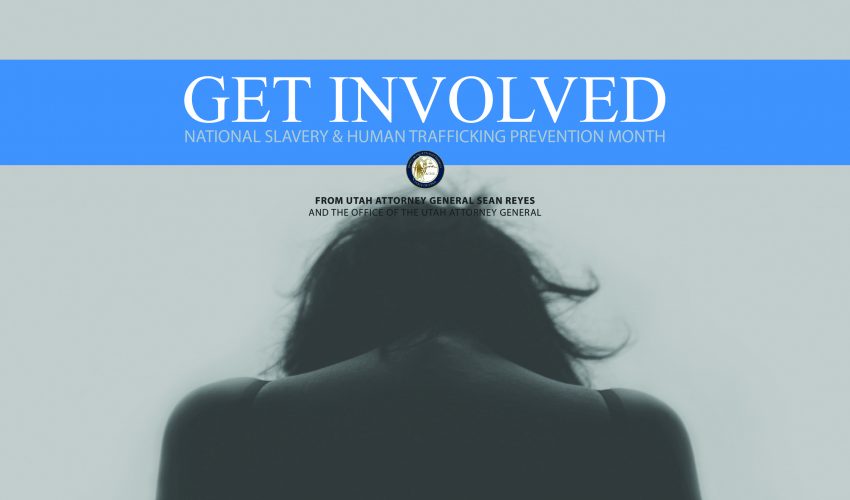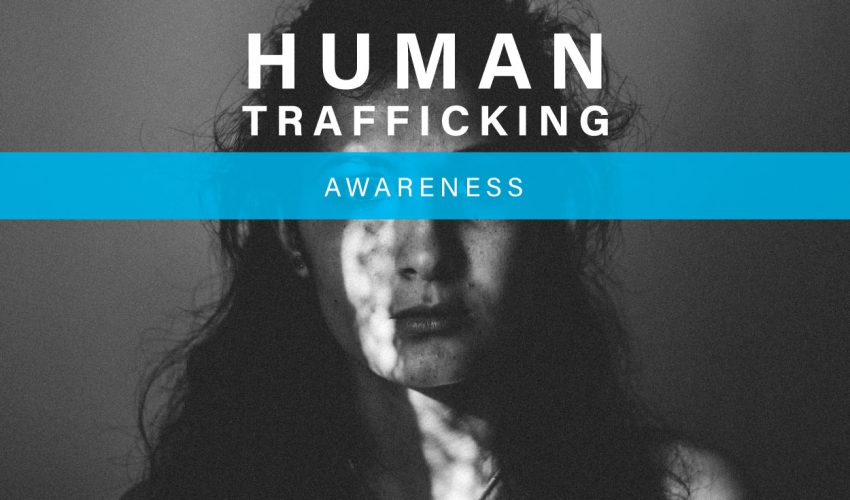January 11, 2020
January is National Slavery and Human Trafficking Prevention Month and today, January 11, is Human Trafficking Awareness Day. As of this moment, there are dozens of people in Utah and thousands across the nation who are suffering the physical and mental anguish of being imprisoned in plain sight.
The human trafficking industry generates approximately $150 billion each year and has an estimated 40.3 million victims world-wide, even in the State of Utah.
Human trafficking is a pervasive and horrific violation of human rights that strips victims of innocence, hope, and dignity. Men, women, and children of any sexual orientation, race, gender, nationality, and from all backgrounds and communities – urban or rural – are trafficked each year.
Traffickers use a number of ways to lure their victims and force them into labor or commercial sex, including force, fraud, or coercion. They may use violence, manipulation, or false promises of a romantic relationship or a well-paying job. Traffickers use “invisible ropes” that involve complex manipulative tactics to control their victims, despite the popular portrayal in books and movies that traffickers use handcuffs, chains, cages, and locked rooms. A victim’s trauma may be so great that they may not identify as a victim and will not ask for help. Language barriers, fear of traffickers, and fear of law enforcement may prevent a victim from speaking out.
Human trafficking is a fast-growing, transnational epidemic. The Utah Attorney General’s Office through its Utah Trafficking in Persons (UTIP) Task Force and SECURE Strike Force, along with many partner agencies, aggressively fight against trafficking in all its forms. In 2018, the Utah Attorney General’s Office conducted 49 human trafficking investigations, prosecuted 8 cases, and served 44 victims. Utah has made great strides to combat trafficking and was recently ranked among the top in the nation for its dedication to the fight against minor sex trafficking. Despite this, there is still much work to be done.
The AG’s Office invites Utahns this January to get involved. Learn the signs of human trafficking and how to report it here. Register for the free Annual UTIP Human Trafficking Symposium by the AG’s Office at the University of Utah on January 24, to learn about human trafficking from the perspective of attorneys, case managers, law enforcement, and medical providers. Utahns can also report tips regarding human trafficking to the Utah Attorney General’s Office:
- Utah Human Trafficking Tipline: 801-200-3443
- Internet Crimes Against Children Tipline: 801-281-1211
The AG’s Office would like to thank our partners in the fight against human trafficking:
- Adult Probation and Parole/Department of Corrections
- Backyard Broadcast
- Bountiful Police Department
- Children’s Justice Center
- Davis County Sheriff’s Office
- Division of Child and Family Services
- The Department of Justice
- Department of Public Safety/Utah Statewide Information and Analysis Center
- doTerra
- Federal Bureau of Investigations-Salt Lake City
- Fight the New Drug
- Homeland Security Investigations- U.S. Immigration and Customs Enforcement
- Juvenile Justice Services
- Malouf Foundation
- Ogden Police Department
- Operation Underground Railroad
- Orem Police Department
- Park City Police Department
- Refugee & Immigrant Center – Asian Association of Utah
- Restoring Ancestral Winds
- Safe Harbor
- Salt Lake City Police Department
- SHEROES United
- South Valley Services
- The Road Home
- Unified Police Department
- U.S. Attorney’s Office
- U.S. Department of State’s Diplomatic Security Service
- Utah Coalition Against Sexual Assault
- Utah Crime Victims Legal Clinic
- Utah Domestic Violence Coalition
- Utah Legal Services
- Utah Office for Victims of Crime
- Various professionals from the medical community
- West Jordan Police Department
- West Valley Police Department
- West Wendover Police Department
- YCC Family Crisis Center
- 3 Strands Global Foundation
- 4th Street Clinic


